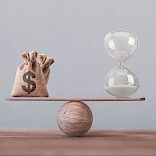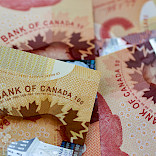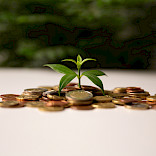In my view, the last true crisis experienced by stock market investors was the COVID-19 pandemic, which lasted nearly two years but hit especially hard at the beginning of 2020. I still remember that the market lost nearly 30% of its value in March 2020, although it’s true that the rebound came quickly in the following months.
In a post in March 2020 titled “How to Respond to Uncertainty Caused by the Coronavirus?” I had written: “The first way would be precisely not to react—simply to do nothing.”
I added these words: “To help you ‘do nothing’ with your investments, avoid checking the prices of your stocks or the value of your portfolio for a few weeks. You can come back to it once the dust has settled.”
The previous crisis—the financial crisis of 2008–2009—was just as frightening as COVID. In December 2008, I wrote a short piece in the COTE 100 Financial Letter titled “A Buyer’s Market,” in which I noted: “No one knows when the market’s fall will end. However, we must take advantage of the opportunities and wait for the eventual rebound. At the risk of repeating myself, our strategy is to focus on non-cyclical sectors and, above all, companies in excellent financial health. Profitable companies with little debt will make it through the crisis.” I would add that a little further down in that issue, we recommended buying shares of CGI, which—more than 16 years later—we still hold in our managed portfolios. The stock was worth $9 at the time. Today, it is worth over $145.
As for the current situation with tariffs, it is both like and different from past crises. It is similar in that it is filled with uncertainty, and it is difficult to predict how long it will last or how severe the economic damage will be. It is different because the tariff crisis is, in a sense, a crisis of the U.S. administration’s own making, whereas previous crises were the result of exogenous factors: natural causes in the case of COVID, and excesses in the real estate sector during the 2008–2009 crisis. Even if the current crisis could easily have been avoided, it is no less real for that.
Whatever the causes of the current crisis, I am convinced that what served us well during the last two crises will serve us just as well in this one. The coming months promise to be difficult and unpredictable, but those who hold a well-diversified portfolio of quality companies will get through this crisis—and emerge even stronger. The stock market rewards patient and rational investors at the expense of speculative and irrational ones. Don’t be among those investors rushing for the exits—they’ll probably regret it in a few years.
Philippe Le Blanc, CFA, MBA
Chief Investment Officer at COTE 100
_______






